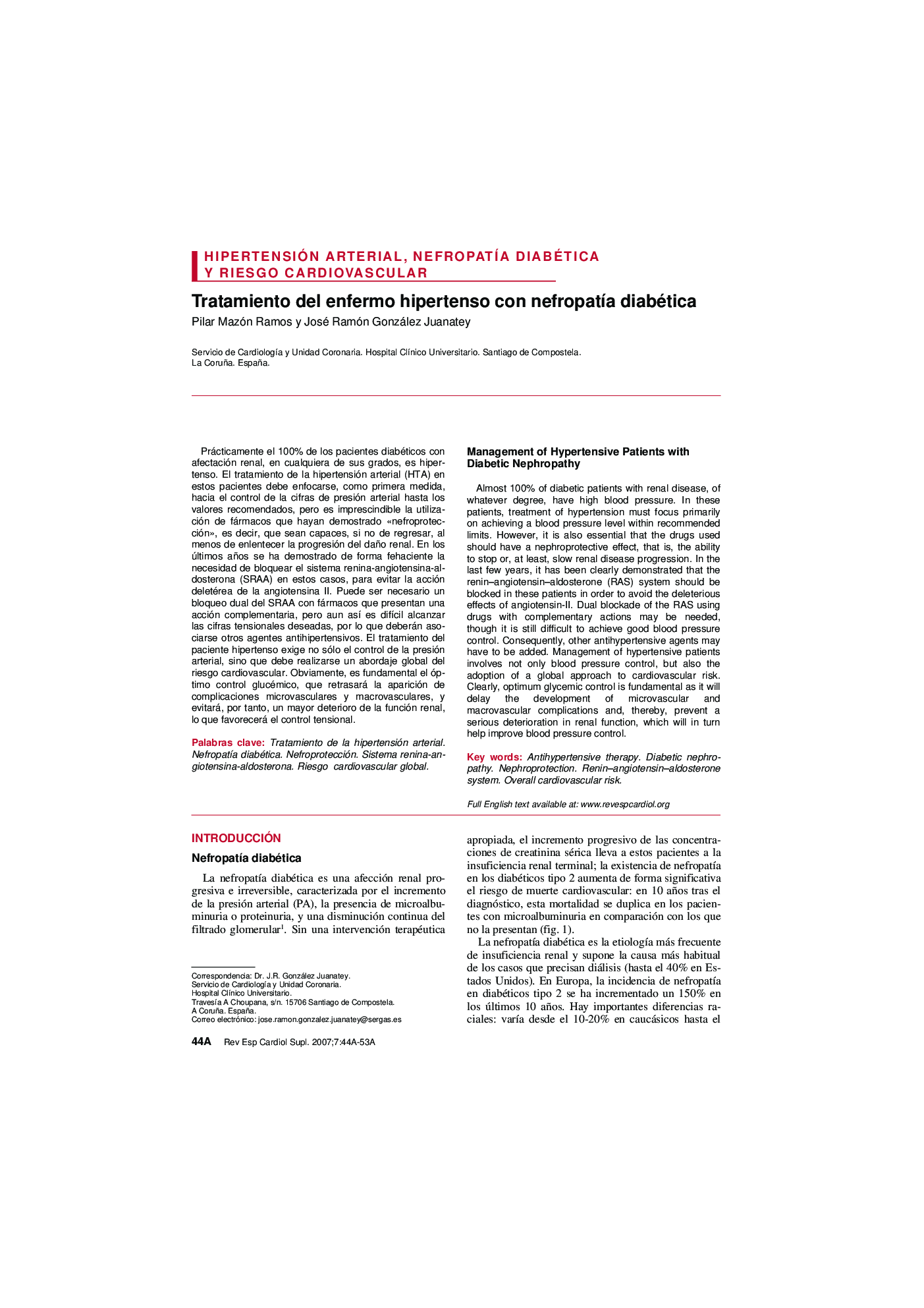| Article ID | Journal | Published Year | Pages | File Type |
|---|---|---|---|---|
| 3019747 | Revista Española de Cardiología Suplementos | 2007 | 10 Pages |
Abstract
Almost 100% of diabetic patients with renal disease, of whatever degree, have high blood pressure. In these patients, treatment of hypertension must focus primarily on achieving a blood pressure level within recommended limits. However, it is also essential that the drugs used should have a nephroprotective effect, that is, the ability to stop or, at least, slow renal disease progression. In the last few years, it has been clearly demonstrated that the renin-angiotensin-aldosterone (RAS) system should be blocked in these patients in order to avoid the deleterious effects of angiotensin-II. Dual blockade of the RAS using drugs with complementary actions may be needed, though it is still difficult to achieve good blood pressure control. Consequently, other antihypertensive agents may have to be added. Management of hypertensive patients involves not only blood pressure control, but also the adoption of a global approach to cardiovascular risk. Clearly, optimum glycemic control is fundamental as it will delay the development of microvascular and macrovascular complications and, thereby, prevent a serious deterioration in renal function, which will in turn help improve blood pressure control.
Keywords
HTAIECAARA-IISRAANefroprotecciónantagonistas de los receptores de la angiotensina IINephroprotectionantihypertensive therapyrenin–angiotensin–aldosterone systemSistema renina-angiotensina-aldosteronaPresión arterialHipertensión arterialinhibidores de la enzima de conversión de la angiotensinaDiabetic nephropathyNefropatía diabética
Related Topics
Health Sciences
Medicine and Dentistry
Cardiology and Cardiovascular Medicine
Authors
Pilar Mazón Ramos, José Ramón González Juanatey,
